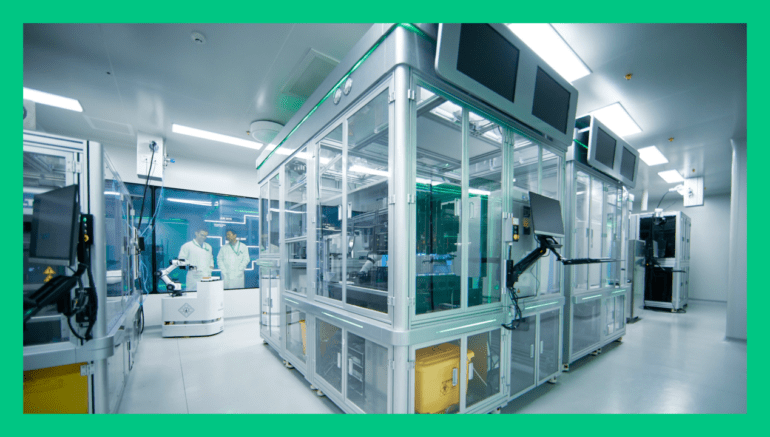TL;DR:
- Insilico Medicine, a biotech company supported by the UAE, has initiated clinical trials for a drug designed using artificial intelligence (AI).
- The drug, INS018_055, targets idiopathic pulmonary fibrosis (IPF), a chronic lung disease.
- The first dose has been administered to patients as part of Phase II trials, with plans to recruit more participants in the US and China.
- The 12-week trial aims to evaluate the safety, tolerability, and efficacy of the orally-delivered drug.
- Insilico Medicine’s breakthrough highlights the potential of AI in drug discovery and development.
Main AI News:
In a groundbreaking development, a biotechnology company supported by the UAE has commenced testing a drug that was “discovered and designed” using artificial intelligence (AI) on patients. Insilico Medicine, a Hong Kong-based company with a research and development center in Abu Dhabi, utilized advanced technology to develop a drug aimed at treating idiopathic pulmonary fibrosis (IPF), a chronic lung disease characterized by scarring of the lungs and breathing difficulties.
The company has recently administered the first dose of the drug, called INS018_055, to patients participating in Phase II trials. Plans are underway to recruit an additional 60 individuals for the study at sites in the United States and China. Over the course of the 12-week trial, the safety, tolerability, and efficacy of the orally-delivered drug will be assessed.
Feng Ren, Chief Scientific Officer of Insilico Medicine, expressed optimism about the drug’s potential, stating, “With demonstrated potential against both fibrosis and inflammation, INS018_055 could offer another option for patients worldwide.” This achievement marks an important milestone for Insilico and the field of AI-driven drug discovery and development.
Dr. Alex Zhavoronkov, founder and co-chief executive of Insilico Medicine, emphasized the significant progress made in AI-powered drug development. “Initiating Phase II trials with this novel inhibitor for IPF represents a major milestone for deep generative reinforcement learning in drug discovery,” he said. Dr. Zhavoronkov also highlighted the importance of clinical trials in validating the efficacy of AI-discovered and designed treatments and showcasing the value of generative AI in drug discovery and development.
Idiopathic pulmonary fibrosis typically affects individuals aged 70 and older, and its cause remains unclear. While existing treatments can alleviate its impact, there is currently no method to halt or reverse lung scarring. AI technologies offer a potential lifeline by revolutionizing the drug discovery process, traditionally characterized by its lengthy and expensive nature. By leveraging AI tools, researchers can analyze vast datasets to gain insights into diseases and identify genes and proteins that can counteract them. Additionally, AI can facilitate drug simulations, predict outcomes, and aid in the design of vital medications.
Insilico Medicine’s commitment to AI-driven drug discovery is further evidenced by the establishment of its Generative Artificial Intelligence and Quantum Computing Research and Development Centre in Masdar City, Abu Dhabi. The center, located within the International Renewable Energy Agency headquarters, benefits from the prime location, robust economy, advanced infrastructure, and highly educated talent pool offered by Abu Dhabi.
Conclusion:
The commencement of clinical trials for the AI-developed drug by Insilico Medicine is a significant development in the biotech market. By leveraging AI technology, the company has streamlined the drug discovery process and demonstrated the potential of AI-powered treatments for complex diseases like idiopathic pulmonary fibrosis. This breakthrough not only validates the efficacy of AI-driven drug development but also showcases the value of generative AI platforms. As AI continues to revolutionize the medical field, it holds immense promise for improving patient care and opening new avenues for innovation in the pharmaceutical industry. The success of Insilico Medicine’s trials could pave the way for further advancements in AI-driven drug discovery and have a transformative impact on the market by offering novel treatment options for patients worldwide.

